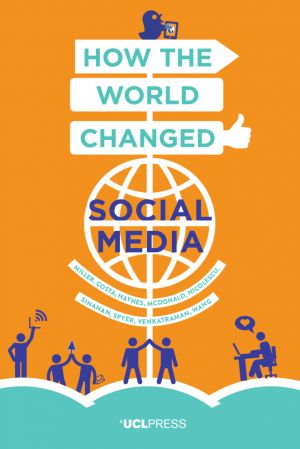How the World Changed Social Media
by Daniel Miller, Dr Elisabetta Costa, Nell Haynes, Tom McDonald, Dr Razvan Nicolescu, Jolynna Sinanan, Juliano Spyer, Shriram Venkatraman, Xinyuan Wang
DescriptionTable of ContentsDetailsHashtagsReport an issue
Supported by an introduction to the project's academic framework and theoretical terms that help to account for the findings, the book argues that the only way to appreciate and understand something as intimate and ubiquitous as social media is to be immersed in the lives of the people who post. Only then can we discover how people all around the world have already transformed social media in such unexpected ways and assess the consequences. 






Book Description
How the World Changed Social Media is the first book in Why We Post, a book series that investigates the findings of anthropologists who each spent 15 months living in communities across the world. This book offers a comparative analysis summarising the results of the research and explores the impact of social media on politics and gender, education and commerce. What is the result of the increased emphasis on visual communication? Are we becoming more individual or more social? Why is public social media so conservative? Why does equality online fail to shift inequality offline? How did memes become the moral police of the internet?Supported by an introduction to the project's academic framework and theoretical terms that help to account for the findings, the book argues that the only way to appreciate and understand something as intimate and ubiquitous as social media is to be immersed in the lives of the people who post. Only then can we discover how people all around the world have already transformed social media in such unexpected ways and assess the consequences.
This open book is licensed under a Creative Commons License (CC BY-NC-ND). You can download How the World Changed Social Media ebook for free in PDF format (36.6 MB).
Table of Contents
Chapter 1
What is social media
Chapter 2
Academic studies of social media
Chapter 3
Our method and approach
Chapter 4
Our survey results
Chapter 5
Education and young people
Chapter 6
Work and commerce
Chapter 7
Online and offline relationships
Chapter 8
Gender
Chapter 9
Inequality
Chapter 10
Politics
Chapter 11
Visual images
Chapter 12
Individualism
Chapter 13
Does social media make us happier?
Chapter 14
The future
Book Details
Title
How the World Changed Social Media
Subject
Computer Science
Publisher
UCL Press
Published
2016
Pages
288
Edition
1
Language
English
ISBN13
9781910634479
ISBN10
1910634476
ISBN13 Digital
9781910634493
ISBN10 Digital
1910634492
PDF Size
36.6 MB
License

Related Books
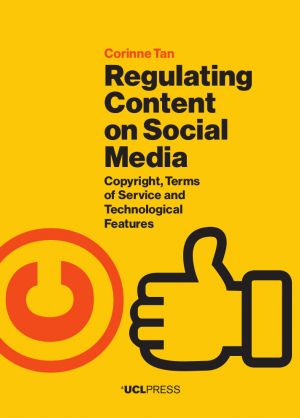
How are users influenced by social media platforms when they generate content, and does this influence affect users' compliance with copyright laws?
These are pressing questions in today's internet age, and Regulating Content on Social Media answers them by analysing how the behaviours of social media users are regulated from a copyrig...
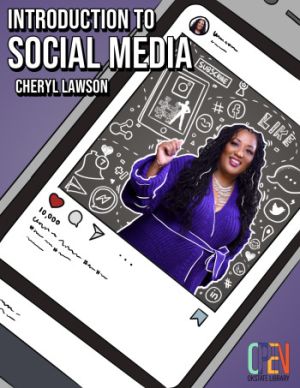
This book is aimed at managers, business owners, marketing managers, and aspiring social media marketing interns and managers. I will assume that however accomplished in your own field - baker, developer, teacher and that even as successful business owners, you approach the topic of social media marketing as a beginner. Even if you are an avid pers...

Understanding the music industry as it exists today requires an understanding of how it developed over time. Today's music industry would most certainly not be the one anybody would design from scratch. It has many inefficiencies and quirks that reflect the economic pressures and musical concerns of bygone ages.
The history of music is clos...

When considering "the Internet of Things," it's easy to miss the bigger pattern: we are no longer just building software for individual devices, but creating networks of intelligence and action that make it possible to completely rethink how we organize work, play, and society itself. This report provides the complete text of Tim O&#...
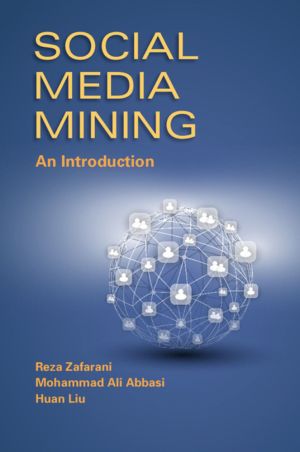
The growth of social media over the last decade has revolutionized the way individuals interact and industries conduct business. Individuals produce data at an unprecedented rate by interacting, sharing, and consuming content through social media. Understanding and processing this new type of data to glean actionable patterns presents challenges an...
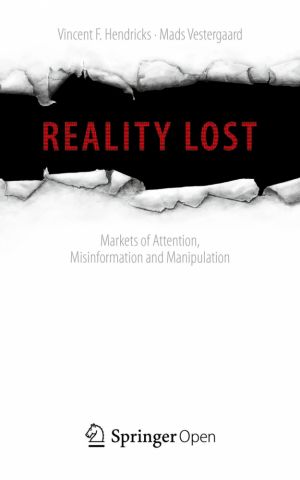
This book looks at how a democracy can devolve into a post-factual state.The media is being flooded by populist narratives, fake news, conspiracy theories and make-believe. Misinformation is turning into a challenge for all of us, whether politicians, journalists, or citizens. In the age of information, attention is a prime asset and may be convert...

